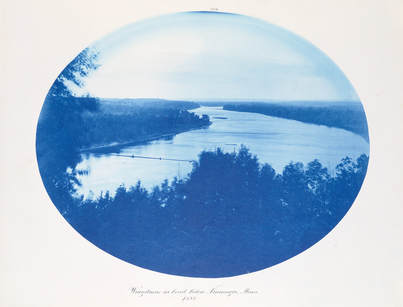the sticking point
|
...the sea deep as love.
Mary Ruefle, “Rain Effect” Because the blue and green of it are content. Because I’ve opened my mouth to the salt and it tastes almost like midnight or a wound. Because I will fall faster and lighter and farther where there is no barrier reef but that’s not the sticking point. See how sea enjoys a spirit of silence in its eels, its starfish. Because. One poet dared to write the sea cold as love and knew I would ponder what she meant: how the choices are few for all who ignore women in revolution. |
|
chord
for my birth mother
I
She didn’t ask for me
when she saw all of it ending
so I don’t know how she went out.
Whether she wept or sang
Precious Lord or I Wish I Knew,
she didn’t ask for me.
Perhaps she asked for nothing —
nothing being what she once chose.
I don’t know how she went out —
whether dreaming of my father
or of the revulsion she had for her own,
she didn’t ask for me.
She could have left one suggestion —
she didn’t, and maybe she died hard.
I don’t know how she went out.
Whether dreaming of me or furious
she was at the end of dreaming and
left with one last choice: not to ask.
I don’t know how she went out &
II
I must tell you this: I did not go to her
before her breathing became shallow
so she never knew what I’ve become —
that, as another’s daughter, I did long.
Still, dressed in apologies and alibis,
I did not go to her —
my feet stuck in the sludge
of my other mother’s don’t do this to me.
She never knew what I’ve become.
She never knew and no one’s to blame.
Why can’t every choice be just a choice?
Because I didn’t go to her
and why not? — continually — and
even then, I didn’t. What is that?
Even I don’t know if I’ve become
a liar, always fire in the grate, or some-
one else’s reason to be grateful but that’s
not good enough. I did not go to her.
Anyone can see what I’ve become.
I
She didn’t ask for me
when she saw all of it ending
so I don’t know how she went out.
Whether she wept or sang
Precious Lord or I Wish I Knew,
she didn’t ask for me.
Perhaps she asked for nothing —
nothing being what she once chose.
I don’t know how she went out —
whether dreaming of my father
or of the revulsion she had for her own,
she didn’t ask for me.
She could have left one suggestion —
she didn’t, and maybe she died hard.
I don’t know how she went out.
Whether dreaming of me or furious
she was at the end of dreaming and
left with one last choice: not to ask.
I don’t know how she went out &
II
I must tell you this: I did not go to her
before her breathing became shallow
so she never knew what I’ve become —
that, as another’s daughter, I did long.
Still, dressed in apologies and alibis,
I did not go to her —
my feet stuck in the sludge
of my other mother’s don’t do this to me.
She never knew what I’ve become.
She never knew and no one’s to blame.
Why can’t every choice be just a choice?
Because I didn’t go to her
and why not? — continually — and
even then, I didn’t. What is that?
Even I don’t know if I’ve become
a liar, always fire in the grate, or some-
one else’s reason to be grateful but that’s
not good enough. I did not go to her.
Anyone can see what I’ve become.
Lynne Thompson was given Honorable Mention in Pushcart Prize XLII in 2018, the Tuscon Literary Award (Poetry) in 2017, and an Individual Artist Fellowship from the City of Los Angeles for 2015-2016. Thompson is the author of Start With a Small Guitar and Beg No Pardon, winner of the Perugia Book Award and the Great Lakes Colleges Association’s New Writers Award. Recent work appears or is forthcoming in Ecotone, Salamander, The Fourth River, African American Review, and Poetry, among others. Thompson is Reviews and Essays Editor for the literary journal, Spillway.

